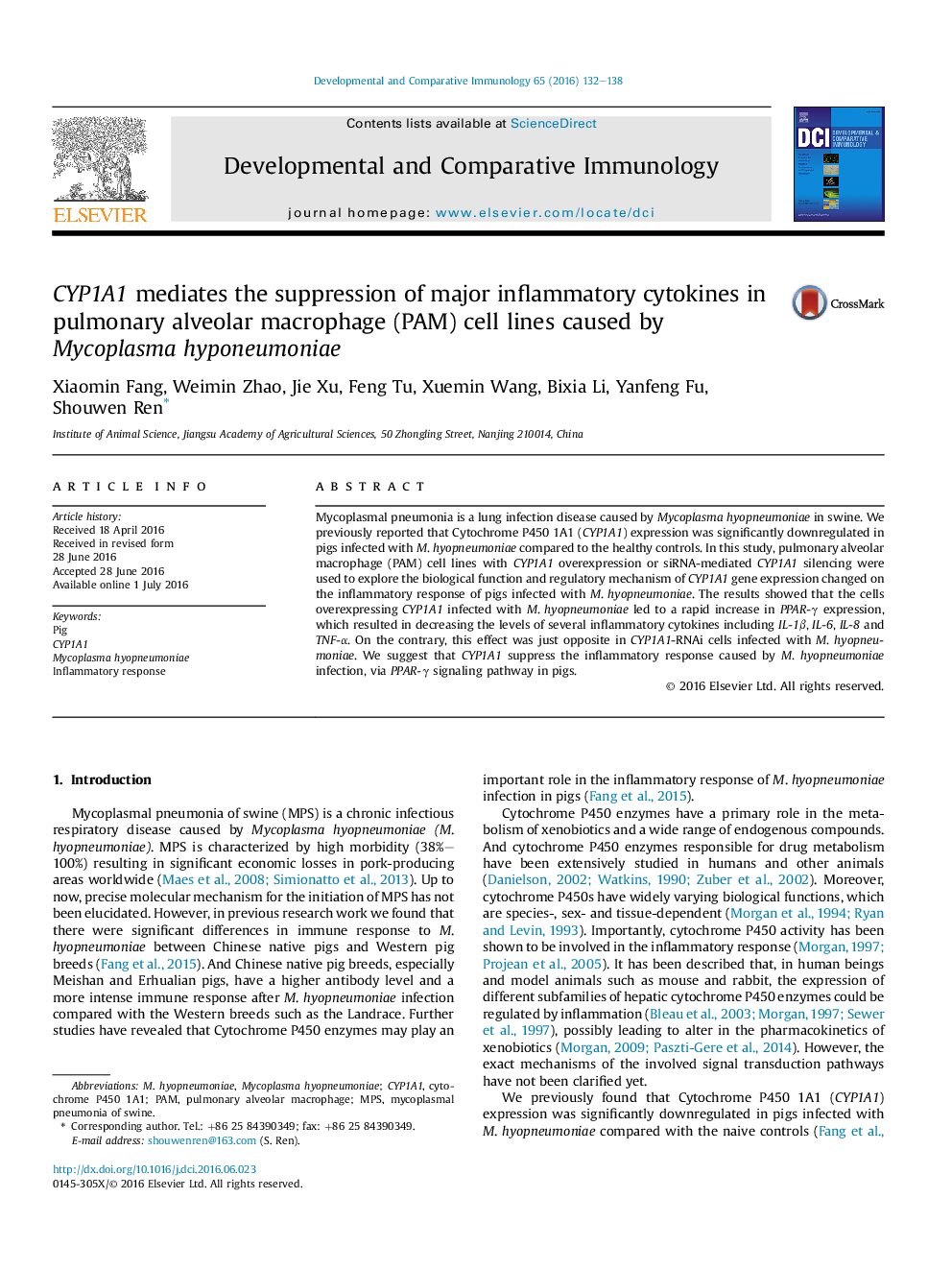| Article ID | Journal | Published Year | Pages | File Type |
|---|---|---|---|---|
| 2428748 | Developmental & Comparative Immunology | 2016 | 7 Pages |
•CYP1A1 overexpression in PAMs infected with Mycoplasma hyopneumoniae led to increase PPAR-γ and decrease inflammatory factors levels.•In siRNA-CYP1A1 PAMs infected with M. hyopneumoniae, PPAR-γ was decreased and inflammatory factors were increased obviously.•CYP1A1 suppresses the responses of major inflammatory factors of PAMs infected with M. hyopneumoniae.
Mycoplasmal pneumonia is a lung infection disease caused by Mycoplasma hyopneumoniae in swine. We previously reported that Cytochrome P450 1A1 (CYP1A1) expression was significantly downregulated in pigs infected with M. hyopneumoniae compared to the healthy controls. In this study, pulmonary alveolar macrophage (PAM) cell lines with CYP1A1 overexpression or siRNA-mediated CYP1A1 silencing were used to explore the biological function and regulatory mechanism of CYP1A1 gene expression changed on the inflammatory response of pigs infected with M. hyopneumoniae. The results showed that the cells overexpressing CYP1A1 infected with M. hyopneumoniae led to a rapid increase in PPAR-γ expression, which resulted in decreasing the levels of several inflammatory cytokines including IL-1β, IL-6, IL-8 and TNF-α. On the contrary, this effect was just opposite in CYP1A1-RNAi cells infected with M. hyopneumoniae. We suggest that CYP1A1 suppress the inflammatory response caused by M. hyopneumoniae infection, via PPAR-γ signaling pathway in pigs.
